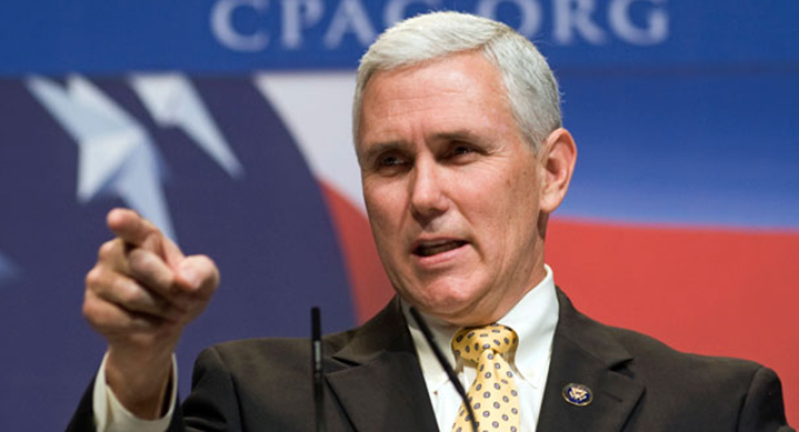
Indiana Gov. Mike Pence continued to defend the Religious Freedom Restoration Act he recently signed into law. Now he has written an editorial clarifying why he signed it in the first place.
In an editorial published by the Wall Street Journal on Tuesday, Pence argued that Indiana state law will continue to respect religious freedom. He did his best to counter heated arguments that the law creates a "license to discriminate" against the LGBT community.
"I want to make clear to Hoosiers and every American that despite what critics and many in the national media have asserted, the law is not a 'license to discriminate,' either in Indiana or elsewhere," Pence wrote. "In fact, the Religious Freedom Restoration Act reflects federal law, as well as law in 30 states nationwide. Indiana's legislation is about affording citizens full protection under Indiana law."
Pence added that he abhors discrimination. As an example, he explained that he wouldn't eat in any restaurant that refused to serve gay couples.
"As governor of Indiana, if I were presented a bill that legalized discrimination against any person or group, I would veto it," Pence wrote. "Indiana's new law contains no reference to sexual orientation. It simply mirrors federal law that President Bill Clinton signed in 1993."
The governor noted that his view is backed up by Daniel O. Conkle, a professor at Indiana University Maurer School of Law. Although Conkle indicated in his editorial to the Indianapolis Star that he was an unapologetic supporter of gay rights and same-sex marriage, he argued that Pence's law had "everything to do with religious freedom."
"The bill would establish a general legal standard, the 'compelling interest' test, for evaluating laws and governmental practices that impose substantial burdens on the exercise of religion," Conkle wrote. "This same test already governs federal law under the federal RFRA."
The Indiana governor contended that RFRA legislation has received wide bipartisan support in the past. He explained that it was necessary for Indiana to pass a state version, especially after the Affordable Care Act passed in 2010, which some have argued that it gave the government new power to infringe on religious beliefs.
"Last year the Supreme Court upheld religious liberty in Burwell v. Hobby Lobby, based on the federal RFRA," Pence wrote. "With the Supreme Court's ruling, the need for a RFRA at the state level became more important, as the federal law does not apply to states."
According to Pence, RFRA only provided a "mechanism to address claims" as opposed to legalizing discrimination between private parties.
"Even a claim involving private individuals under RFRA must show that one's religious beliefs were 'substantially burdened' and not in service to a broader government interest-which preventing discrimination certainly is," Pence wrote. "The government has the explicit power under the law to step in and defend such interests."
Pence concluded that his state was "synonymous with everything that is good about America."
"Faith and religion are important values to millions of Indiana residents," Pence wrote. "With the passage of this legislation, Indiana will continue to be a place that respects the beliefs of every person in our state."
Pence's editorial has received hundreds of comments from Wall Street Journal readers.






